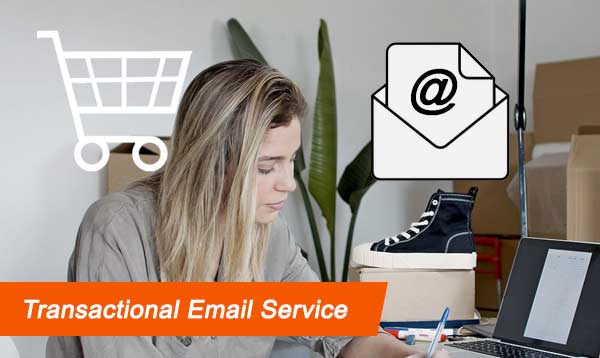Transactional Email Service
Transactional Email Service Table of Contents
- Transactional Email Service
- What Is Transaction Email?
- Uses Of Transaction Emails
- Receipts And Confirmations
- Explicit Requests
- Account Related Alerts
- Behavioural Triggers
- Event Driven Notifications
- Summaries
- Referrals and invitations
- Transactional Email Service Verdict
- Overview of Transactional Email Service
- Best Marketing automation Solution by Rating
- Best Marketing automation Solution by Price
- Best Marketing automation Solution by Rated Features
- Check Your Marketing automation Solution Offers Round The Clock Support
- Make Sure Your Marketing automation Solution Offers The Features You Need
- Best Marketing automation Software Solution Verdict
- Marketing automation Software Frequently Asked Questions
- What is the best Marketing automation Solution?
- What is the cheapest Marketing automation Solution?
- Is there a free Marketing automation Solution?
- View all of the top Marketing automation Software Solutions
- Marketing automation Alternatives
- Marketing automation VS Side by Side Comparisons

Transactional Email Service
What Is Transaction Email?
Transactional email is a kind of automatic send-to-recipient email. It differs from marketing emails in that transactional emails are generated not by a company's marketing strategy, but instead by incidents, connections, or desires in a service or an application. This is why transaction emails are often referred to as activated emails.
Although transactional emails can help meet marketing needs by restoring abandoned carts or re-activating dormant accounts, these emails are usually meant to include a scheduled notification of a recipient's (in)action or order. In comparison to commercial emails that simultaneously deliver the same marketing message for multiple users, transactional emails are normally personally customized and sent to individuals at once.
Uses Of Transaction Emails
Receipts And Confirmations
Receipts and confirmations are the most common forms of transactional emails. These typically happen after a sale, which is why these kinds of emails are first and foremost considered transactional. Typically, it is an order confirmation or a receipt where consumers get an e-mail with specifics of a buy which they have made online.
Items such as e-books, pdfs or other digital goods, and app orders are usually often sent as part of an e-mail receipt. However, emails of clarification should not be connected to a financial transaction. New account registrations and RSVP activities also trigger validation e-mails to ensure the user has been registered.
Explicit Requests
These forms of transactional mail provide information that the users of an application or utility have requested for. The requests are normally urgent. A password reset is one of the most frequent instances of a particular request. As users cannot enter their accounts without a password, an automatic response to a password reset request is required.
An example of an explicit request is a two-factor authentication security code that allows users to insert, in addition to the main password, a temporary password for entry to their account.
Account Related Alerts
Emails not requested directly by customers, but activated on the basis of account change are known to be account warnings. Examples of account-related warnings are unnatural mails that remind consumers of unpaid invoices or of failure to pay. Such transactional emails remind the consumer of billing problems and reduces turnover.
Dunning emails are a gentle way for consumers to update their billing details as they fear shutting off their accounts. Additional examples are login and e-mail updates, log-in attempt alerts, expiry of the trial, or other account difficulties.
Behavioural Triggers
Behavioral e-mail is one of the most marketing-oriented e-mail forms and it can be used to improve consumer satisfaction. Users will receive such e-mails after meeting certain criteria depending on their contact with a program or application.
An onboard mail is an example of a behavioral email. Users get welcome emails to help them familiarize themselves with an application while developing new accounts. A second email will remind you of the functionalities or the check-in after a period of time, to ensure you are satisfied with the service.
Examples of behavioral emails also cover lost cart emails and reactivations. If consumers filled their carts but have not completed checkouts, they will get an electronic e-mail that alerts them of the things left behind. Cart emails may be delivered anywhere from a couple of hours to two days away, often with promotional incentives to inspire buyers to buy them.
Emails for reactivation have the same function. If you haven't connected with an applicant for a long duration or if you apply with a program, but you don't use your account, you will get updates to enable them to log in to finish the process of onboarding.
Event Driven Notifications
These email forms are similar to push alerts from cell phones. Event-triggered alerts can be used to warn consumers about a variety of events, including feedback, event reminders, and changes to shipments. Contrary to account warnings, event-driven messages normally do not include acts taken by their recipients, but by other individuals, as is the case for social networks, or by the service, such as reminder or status updates. Also, event-driven alerts will let users know when a new message is received or when a social media post includes a tag. They will also alert users to the shipment or distribution of a package, or to a timely meeting.
Summaries
Summaries or e-mails are usually logged into the full spectrum of activities that have taken place over a given period of time such as account interaction or feedback. These emails are delivered every day, weekly, or monthly to users at specified intervals. Summaries and digests are helpful solutions to users who do not want to skip updates of essential events, but do not want to consistently receive emails all the time.
Digest emails are not confined to previous events. They can also include summaries of activities scheduled for the future. A weekly overview of appointments scheduled for the next week is an indication of this.
Referrals and invitations
Many sites have a way to allow users to build an account through emails with references and invite their friends and colleagues. The service will allow users to type their friends' e-mail addresses in a form. Reference emails work the same way, but differ in that referrals are generally welcomed by the sender and often also by the receiver. In most cases, accounts and gift cards are provided as incentives.
Transactional Email Service Verdict
Transactional emails are a huge advantage for any enterprise and its clients. It will improve sales and dedication through behavior prompts and decrease the load imposed on support teams by automating several requests that need manual accomplishment otherwise. It can also boost consumer morale, customer satisfaction, and extraordinary communication. Therefore, transactional emails can be seen as almost a necessity for any business to build a stronger connection with their clients.
Scroll down to read our indepth Marketing Automation Platforms guide. What you should know, Marketing Automation Platforms features, price plans and support. Pros and Cons of Marketing Automation Platforms as a marketing automation, everything is explained below.
Overview of Transactional Email Service
Sendinblue Premium is a software company that specialises in marketing-automation software for small to enterprise level businesses.
Sendinblue Premium is listed as the best marketing-automation software related to Marketing Automation Platforms. Sendinblue Premium was founded in 2012 in Paris, France and currently has over 248 employees registered on Linkedin.
Best MARKETING AUTOMATION Solution By Rating
Get our stories delivered
From us to your inbox weekly.
 Sendinblue Premium
Sendinblue Premium
 ActiveCampaign
ActiveCampaign
 GetResponse
GetResponse
 Mailchimp All-in-One Marketing Platform
Mailchimp All-in-One Marketing Platform
 Autopilot
Autopilot
 HubSpot
HubSpot
 Drip
Drip
 Omnisend
Omnisend
 BuyerGenomics
BuyerGenomics
 Exponea
Exponea
 eSputnik
eSputnik
 Kizen
Kizen
 Lead Liaison
Lead Liaison
 RedEye Contour
RedEye Contour
 Zoho MarketingHub
Zoho MarketingHub
 VipeCloud
VipeCloud
 Segmentino
Segmentino
 VBOUT
VBOUT
 Aritic PinPoint
Aritic PinPoint
